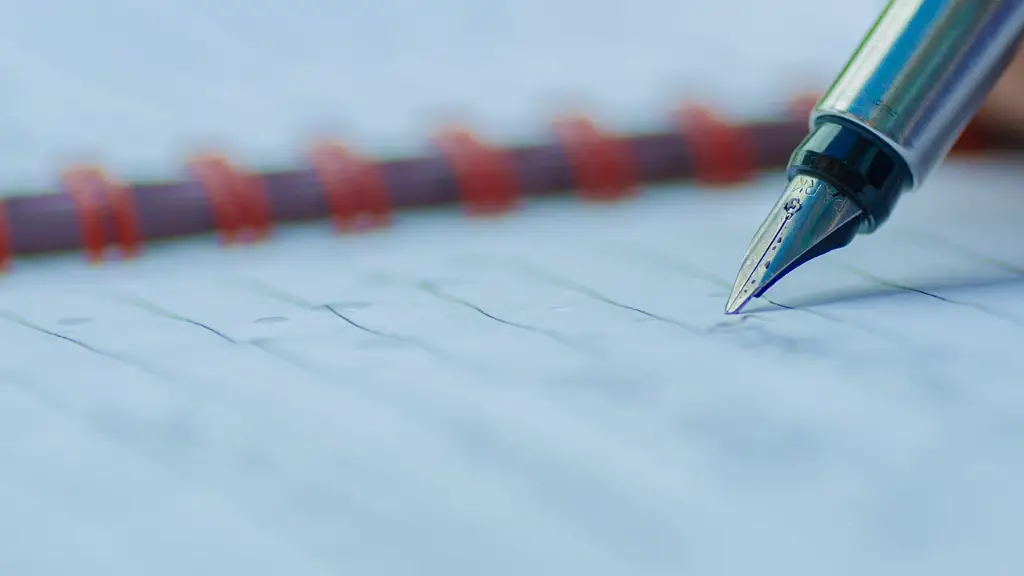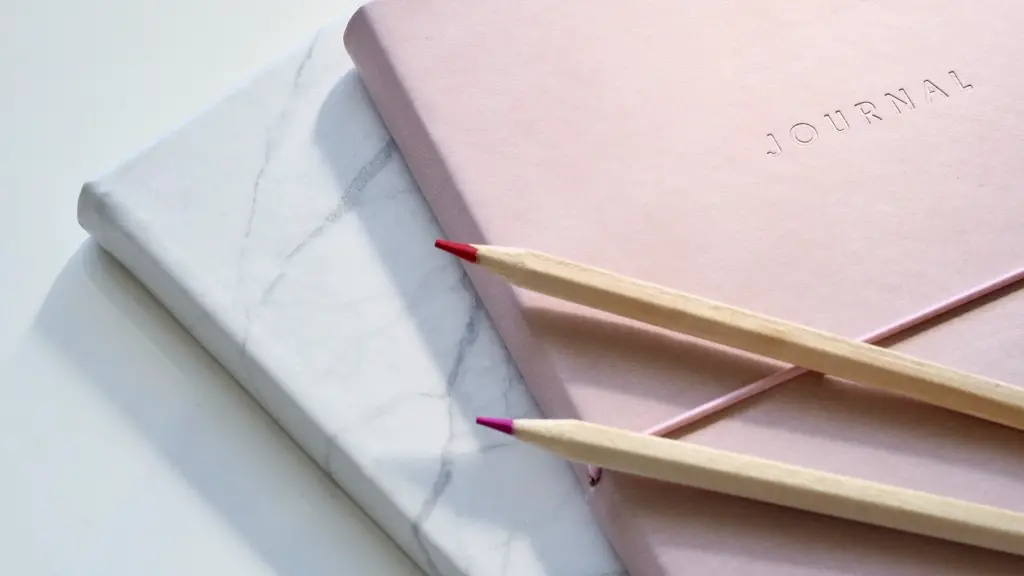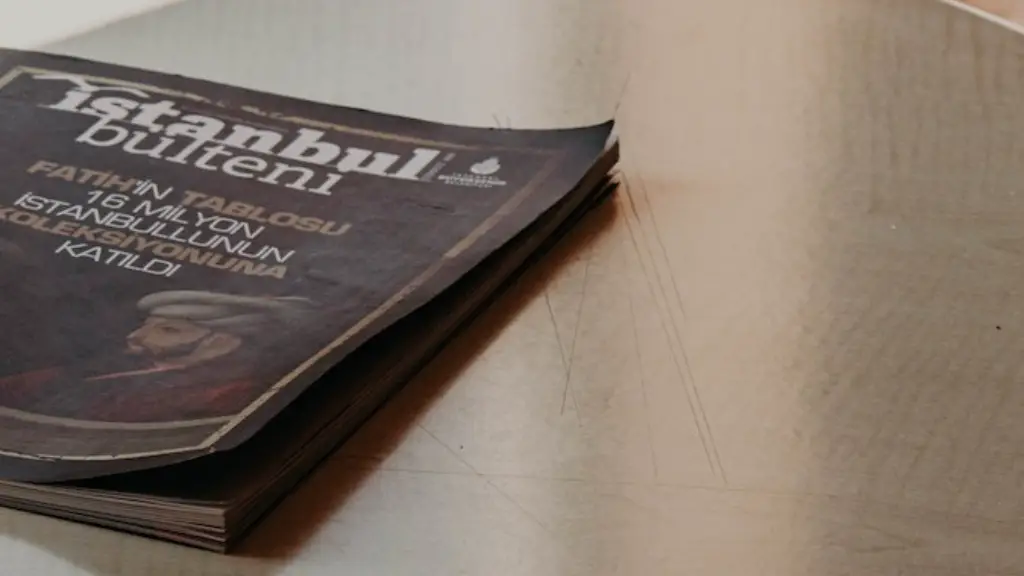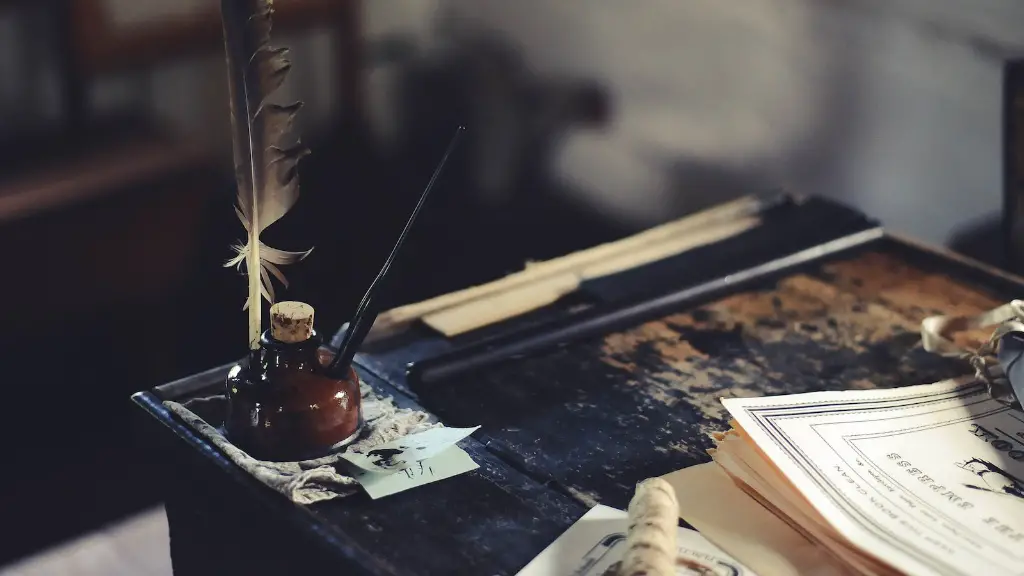Definition
Modern poetry is a type of poetry that dates back to the mid-20th century and marks a dramatic shift in traditional poetic style, form, and subject matter. It is characterized by a focus on the individual experience of the author, as well as exploration of dark and often uncomfortable topics. Unlike traditional poetry, modern poetry isn’t bound to any single poetic form or structure, though it often features free verse and experimentation with different themes, narrative techniques, and imagery.
Originality
One of the key traits of modern poetry is its originality. Authors use their own lived experiences and unique perspectives to craft imaginative and distinct pieces of work. From the implementation of alternative and experimental language to the creative use of structure and syntax, modern poets often strive to create works that represent their own individualized style. Additionally, there is also a focus on originality connoted by the content of the poem. Authors often choose bold and unconventional topics, allowing readers to gain insights into both the artist’s life and the current state of the world.
Unconventional
Modern poetry is often described as being “unconventional” because of its often abstract nature. Poets no longer conform to previously established poetic norms and instead, they explore and employ a variety of styles and forms. This unconventionality is evident in the way that authors are not concerned with things like rhyme, meter, and structure. Instead, modern poetry allows authors to eschew the traditional forms of expression in order to craft works that are based upon their own individualized style and presentation.
Innovative
Modern poetry is also characterized by its innovative approach to language, style, and structure. Modern poets are often considered to be creative with their use of language and ideas. They also strive to be as as emotionally evocative as possible in their work, by using metaphors, alliteration, and imagery to express complex concepts and feelings. Moreover, modern poets often implement unconventional and innovative forms of poetic structure in order to further convey their artistic vision and composition.
Experimental
Modern poetry can also be seen as an experimental form of expression that allows authors to explore new methods of creative expression. Modern poets often explore abstract ideas and topics in an effort to make sense of the world around them. Additionally, modern poetic style often reflects a progressive and boundary-breaking stance on language and subject. Poets often employ experimental techniques, such as free verse status, to further define their vision and redefine the traditional understanding of poetry.
Diverse
Modern poetry is also incredibly diverse and multi-dimensional. In comparison to traditional poetry, there is a greater range of topics and themes explored by modern authors, ranging from personal grievances and political issues to social justice and environmental concerns. Furthermore, modern poets embrace a variety of styles, forms, and approaches to writing in order to craft pieces that accurately represent their own thoughts and experiences.
Political
Modern poetry is often political in nature and often strives to challenge the status quo. Authors often employ their craft as a way of pointing out political and social issues in their societies. Many modern poets seek to create works that stimulate thought and spur action. Furthermore, modern poets often employ unconventional poetic techniques and content in order to make statements that push the boundaries of conventional thought.
Authentic
Lastly, modern poetry is often seen as being “authentic” because of its focus on individual experiences. Modern poets often use their work to express the feelings and emotions that are unique to them. Additionally, modern poets often make use of imagery and diction that reflects the author’s perspective, allowing readers to gain unfiltered insights into the artist’s life and values.
Romance
Romantic modern poetry is a form of expression that is rich in feeling and emotion. Modern poets often reflex deep understanding of love, loss, and hope, often alluding to the fragility of romantic relationships and encounters. Additionally, romantic modern poets strive to utilize their craft to steer clear of the traditional idealization of romance and instead, creates works that accurately reflect the complexities of such relationships.
Nature
Nature-centric modern poetry is a reflection on the beauty that exists in the eart and the power of its energy and influences. Here, authors often craft works that celebrate the interconnectedness among all elements of the natural world. Additionally, modern poets often delve into discussing the fragility of nature, imploring readers to appreciate and recognize its importance.
Night
Nocturnal modern poetry acts as a celebration of the night and its mysteriousness. Here, authors often engage in the exploration of darker and more complex ideas, often alluding to the effects and absence of light. Furthermore, nocturnal modern poetry often examines the vulnerable state that comes with the lack of daylight, focusing on the themes of fear, sadness, and confusion.
Loss
Loss-centric modern poetry is a form of expression that is rich in sadness and despair. Authors often explore the different facets of grieving and often discuss the process of overcoming such pain. Additionally, loss-centric poety often conveys a sense of catharsis, providing comfort to readers who are, in some way, grappling with the same situation.
Death
Death-centric modern poetry is a reflection on mortality and the meaning of life. Here, authors often focus on themes of grief and mourning, exploring the delicate balance of life and death. Additionally, many modern poets often strive to utilize their craft to explore the effects of death on one’s self-perception and identity.



